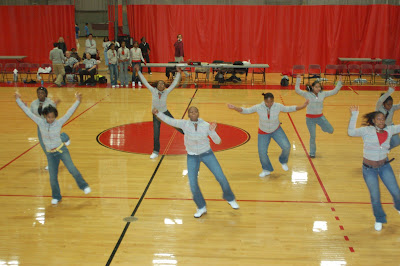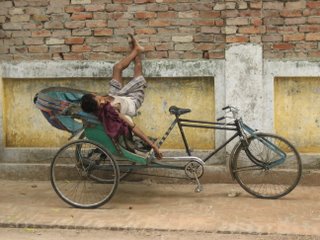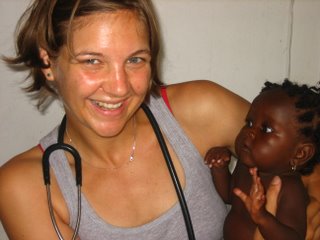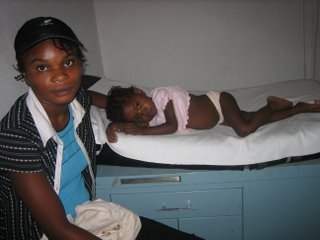This week has been tough.
Monday was my first day flying
solo as a nurse. The past three days have kept my feet running, my brain spinning, and my adrenaline pumping. The busier the floor (and I) get during the day - the more changing of orders for medications,
procedures, tests, monitoring, and diets there are - the less I think about the individual experiences and beauty of each of my patients. I hate that. It is so easy to get caught up in the details and the correct protocol (indeed, one could argue that I'm not getting caught up at all, but only paying attention to what's important) that I forget to look at the person behind the layer of blankets, tubes, and hospital gowns.
One patient, a 71 year old Gambian gentleman, reminded me of why I do this job yesterday, and why I can't get lost in the protocol. Known to a few nurses on the floor as "my boyfriend" (indeed, we all call him our own boyfriends, and one nurse threatened to "meet me outside in the parking lot after work to see who gets him"). He is adorable - and has the face of both a wise man and a playful child, wrinkled, proud, thoughtful and genuine. I swear his eyes are blue- although he insisted, that since he comes from the Africa, that this is impossible.
He has been admitted to our floor twice since my start date. The first time, he had his right leg amputated above the knee from a loss of circulation and degenerative vascular disease. He is practically bed-bound, able to hop with his walker when he isn't connected to the myriad drains and tubes and IV antibiotics. He has been in that bed, in room 12a, with the bedside table to his right and the armchair to his left,and his two automatic drain machines positioned on the floor so that he can see the glowing displays for almost two weeks.
Yesterday his TV broke - causing some confusion and
anxiety on his part. We gave him the choice to move to the other side of the room (12b) where the TV worked and the view was similar. He was confused and angry and after some thought decided that he didn't want to go... but called for me because he had some questions.
I walked into the room and found him looking worried. I
kneeled down by the bed so that we were eye level. "I heard you had some questions for me, what are they? I can give you some answers." With his lilting, magical West-African accent, and his arms opening to display the space around him- he said to me -- trying to explain his dilemma -- "This is my home. Where am I going?"
"You're just moving right over there if you'd like," I said, pointing to the empty side of the room. "It has the same lovely view, and a working TV. I think you'll like it just as much." He pointed to all the
equipment around him. "Will this come with me?" "Of course it will, I said." "Alright," he agreed. "If you'll help."
Together the nurses aid and I unlocked and spun his bed to the other side. We lifted and pulled his
equipment the 15 feet to the opposite side of the room. I made sure to position his machines so that he could clearly see the on-off buttons. He grinned and laid back in the bed, relaxed. "Thank you." He said. "You are a very good driver."
There are some details that I love to get lost in.


















